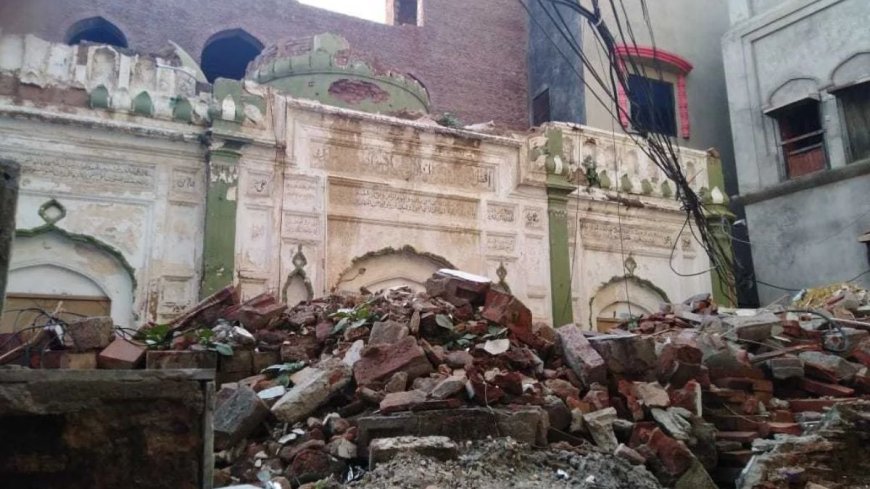Explainer: अहमदिया मुसलमानों के लिए कैसे जहन्नुम बना पाकिस्तान? निशाने पर समुदाय के लाखों लोग
पाकिस्तान में अहमदिया मुस्लिम समुदाय पर धार्मिक, कानूनी और सामाजिक अत्याचार जारी हैं। 1974 में गैर-मुस्लिम घोषित किए जाने के बाद से उन पर हिंसा, भेदभाव और सामाजिक बहिष्कार के मामले बढ़े हैं। पाकिस्तान में यह समुदाय अब भी अपने अधिकारों के लिए संघर्षरत है।

Explainer: How Did Pakistan Become Hell for Ahmadiyya Muslims? Millions of People Under Target
Breaking News, Daily Updates & Exclusive Stories - netaanagari
Pakistan has become a place of torment for the Ahmadiyya Muslim community, facing continuous religious, legal, and social oppression. Since being declared non-Muslim in 1974, the community has seen a grave increase in violence, discrimination, and social ostracism. The plight of the Ahmadiyya community remains dire as they continue their struggle for rights and recognition.
The Historical Context of Discrimination
The Ahmadiyya Muslim community was founded in the late 19th century in British India and has always faced resistance from more orthodox segments of Islam. The turning point came in 1974 when Pakistan's Parliament declared Ahmadis as non-Muslims through the second amendment to the Constitution. This decision has not only legitimized discrimination against them but has also encouraged mob violence and systemic violence.
Ongoing Persecution and Violations
Since being declared non-Muslim, the Ahmadiyya community in Pakistan has faced escalating persecution. Reports of violent attacks, forced conversions, and social exclusion are alarmingly common. Many Ahmadis live in constant fear for their lives and are often impeded in their daily lives by societal hostility. Religious leaders and clerics often incite hatred against them, which results in harassment and physical attacks.
Legal Challenges and the Fight for Rights
The legal framework in Pakistan severely limits the rights of Ahmadis. They are prohibited from calling themselves Muslims, which severely restricts their freedom of religion. Numerous legal actions often aim to suppress their places of worship, prevent their public gatherings, and even media representation. Despite the dangers, many Ahmadis have risen to advocate for their rights. Various organizations now work both locally and globally to raise awareness and provide support to this marginalized community.
International Response and Future Prospects
Internationally, the oppression faced by Ahmadis in Pakistan has drawn attention from human rights organizations. Advocates maintain that the treatment of Ahmadis is a reflection of larger issues of human rights breaches in Pakistan. Despite occasional condemnations from foreign governments and organizations, the situation on the ground shows little sign of improvement. The future remains uncertain as the Pakistani state struggles with its religious identity and minority rights.
Conclusion
The situation for Ahmadis in Pakistan is a poignant reminder of the ongoing issues related to religious tolerance and human dignity. Millions within the Ahmadis community continue to seek refuge from violence and persecution, striving for a world where they can freely practice their beliefs without fear. As this situation remains precarious, it is crucial for the international community to lend its voice in support of religious minorities facing similar tribulations.
For more updates, visit https://netaanagari.com
Keywords:
Ahmadiyya Muslims, Pakistan persecution, religious oppression, minority rights, human rights violations, legal discrimination, social ostracism, religious intoleranceWhat's Your Reaction?













































